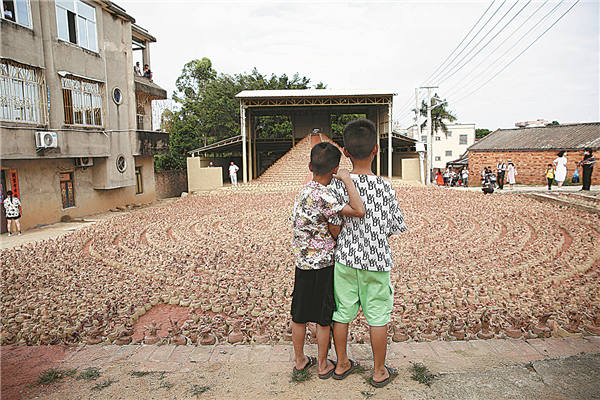

"I tried to answer their questions but it's something which cannot be described by words," says Yu.
As the second son in his family, Yu was a child who always made his parents concerned, because he was a "bad student" and "not well-behaved".His parents made a living by fishing. Though they are not well-educated, they wanted their three sons to have a good life and pursue their dreams.
Yu neither know much about dancing once nor dreamed of becoming a professional dancer.
As a middle school student, he watched some of Michael Jackson's videos and imitated his moves. His elder brother saw his dancing talent and encouraged him to dance. In February 2010, when the villagers got together to have annual rituals to worship their gods and ancestors, which were held on the old stage in the village, Yu's brother encouraged him to dance after a local troupe performed Leiju Opera, an old art form of Guangdong. Yu, then 17 years old, danced for the first time in public, and the audience responded enthusiastically.
"I was very shy but I didn't know why I was able to perform on the stage. I guess that it was the gods who gave me the power to dance and made me realize my love for dancing," he says.
Later, Yu studied traditional dance and contemporary dance at Beijing Contemporary Music Academy. He practiced for hours every day because as a dancer, who started late, he had to work extra hard to make his body flexible. His parents were supportive and turned their small house into a dancing room so that Yu could practice during vacations. It cost Yu's family 150 yuan ($22) to buy a handrail fixed to the wall for him to practice, which is still there.
After the second year of his studies in Beijing, Yu became a member of Tao Dance Theater, among top contemporary dance companies in China. From 2014 to 2018, he danced with the company and toured overseas, performing in more than 30 countries. It allowed Yu to open his mind and gain a different perspective about dancing.